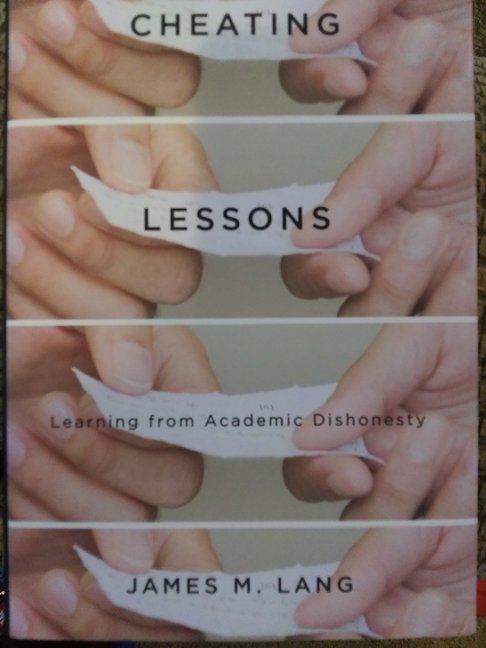LTC

Cheating Lessons by James Lang
James M. Lang wasn’t planning to do research into why, how, and for how long college students have cheated. Lang, a professor of English and director of the D’Amour Center for Teaching Excellence at Assumption College, just wanted to know what to do when he encountered the occasional incidence of cheating, according to the introduction of his 2013 book, Cheating Lessons. Fortunately for Lang and his readers, he was already doing research on cognitive theory and delved into brain and memory functioning. He writes, “...I realized that if I looked at...cheating through the lens of cognitive theory and tried to understand cheating as an inappropriate response to a learning environment that wasn’t working for the student, I could potentially empower...faculty members to respond more effectively to academic dishonesty by modifying the learning environments they constructed,” (p. 2).
In considering literature that documents various kinds of cheating, including decades of cheating in college, Cheating Lessons points to four conditions likely to lead to the decision to cheat: emphasis on performance, extremely high-stakes assessments, extrinsic motivation for success, and low expectation of success (p. 35). The book goes on to discuss in detail various college teachers who have modified their courses to foster intrinsic motivation, help students learn for mastery, lower the stakes, and instill self-efficacy in students. Lowering stakes by offering more tests worth fewer points each also contributes to students’ learning. Click here to read more about offering low-stakes assessment during the transition to online teaching and learning.
Lang also emphasizes the importance of campus-wide discussions about cheating, and more importantly, how cheating is defined on that campus. For schools like UD with an honor code, he says, “...what reduces cheating...is not the code itself, but the dialogue about academic honesty that the code inspires” (p. 172). Cheating Lessons provides a four-pronged approach to broad discussion among campus members about academic integrity policies.
The LTC has held book groups on Cheating Lessons, most recently in fall 2019. If you have suggestions or requests for book group topics, email facdev@udayton.edu.
